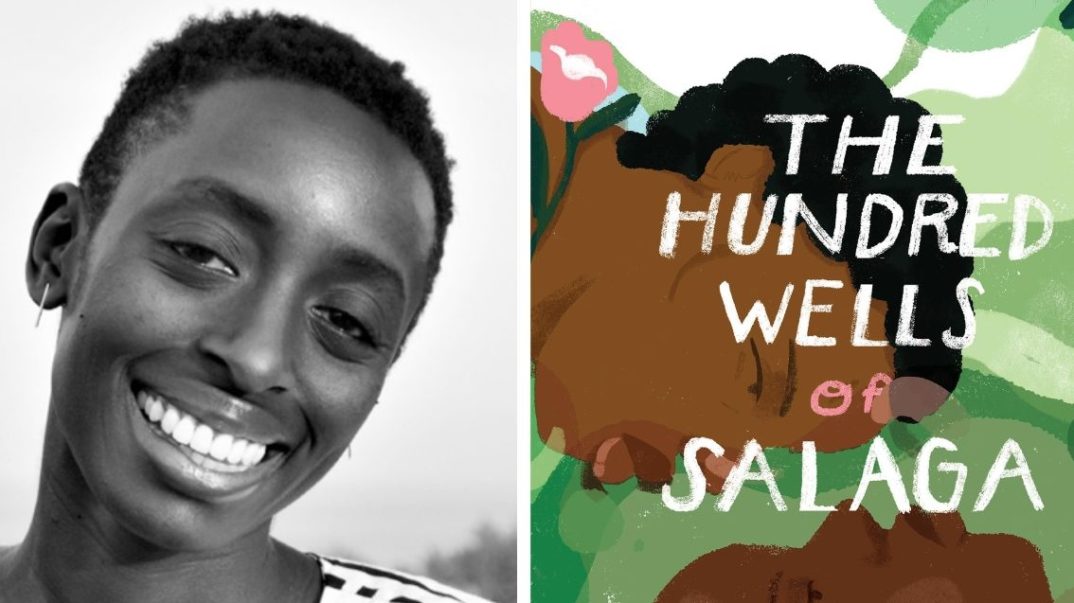New novel from Ayesha Harruna Attah explores pre-colonial Ghana, slavery on the continent, and the human sexuality spectrum
For her third novel, The Hundred Wells of Salaga, Ayesha Harruna Attah explores pre-colonial Ghana through the eyes of two Black women.

For her third novel, Ayesha Harruna Attah explores pre-colonial Ghana through the eyes of two Black women from very different stations in life: Wurche, a young royal with every material desire at her disposal and Aminah, a teen who is ripped from her family and enslaved by other Black people. Most literary depictions of enslaved Africans focus on the Americas, but in The Hundred Wells of Salaga, readers are offered a glimpse of what slavery on the continent was like amongst different tribes outside of the Trans-Atlantic slave trade.
Attah, who was born and raised in Ghana, conducted extensive research to complete this novel. In addition to reading texts from the time-period, she also visited Salaga and talked to family members because one of the characters is loosely based on her ancestor. The result is a beautifully written book that touches on aspects of pre-colonial Africa that readers rarely see, such as slavery outside of the Americas, sexuality that is not constricted by heteronormative boundaries, and the often missing first-hand narrative across cultures all over the world, that of Black women.
Dialing in from her current residence in Senegal, Attah talked to theGrio about creating The Hundred Wells of Salaga and what she has on her plate next.
READ MORE: 20 Black women authors with 2019 book releases you need on your shelves
theGrio: You previously said that researching your great-great grandmother inspired this work. Which character would she most closely resemble and did you get any pushback from your family?
Ayesha Harruna Attah: That would be Aminah, the woman who was enslaved. My great-grandmother’s name is lost to history. The book was an attempt to give her a name. I received a lot of support from my immediate family. My dad told me everything he could. Some of my extended family members didn’t want to talk about her though. Everytime I brought her up, they would try to change the subject. I think there was shame at having enslaved people in the family tree. I think it mostly comes down to one of three things: shame, the past is the past type of mentality and apathy. For the younger generation some of them don’t even know that slavery took place on the African continent.
theGrio: What is the most surprising or interesting thing you learned about that time period with your research?
Ayesha Harruna Attah: Women’s stories were so hard to find. Most of the written material to that time was by white European travelers. Women just weren’t on their radar. The most you could get would be talk of a woman in a market or something like that. Women were erased. As a writer and researcher, that was a narrative I actively sought to find and I did find some work by women. There were writings by Nana Asma’u, who was an amazing poet, teacher, and community leader. She was born in the late 1700s.
There are also written accounts from African missionaries who traveled to Salaga. They looked upon the people they met with more dignity. There are also writings by the descendents of people who lived in Salaga in the time period.
theGrio: There is sensuality in The Hundred Wells of Salaga and it is not always heterosexual in nature. Was it important that you explored sexuality in that way?
Ayesha Harruna Attah: Definitely. Part of it was I wanted to dispel that notion that being on a spectrum of sexuality was something brought to Africa by European colonizers. Being heterosexual was not the only way of life on the continent. There were lots of example of that. In some places, sexuality is recognized as spiritual. You could have a man’s body, but have a feminine spirit and vice. They didn’t speak of these different types of sexuality in pejorative ways. There’s a sense of acceptance. When I write I just want to write society as it is.
theGrio: Women are clearly at the center of the novel, but there are important men in the book as well and you describe everything with such loving detail that I could easily see this as a movie. Any thought to who would play love interest Moro?
Ayesha Harruna Attah: Yes, sexy Moro as some people call him. I could see Idris Elba for that.
theGrio: Good choice, but have you ever seen Queen Sugar?
Ayesha Harruna Attah: Oh, yes! Kofi Siriboe. Thank you for that suggestion. Yes, that could work!
theGrio: I think so too. Kofi’s a keeper. Now that The 100 Wells of Salaga is out in the world, what are you working on? Do you plan on turning this into a series?
Ayesha Harruna Attah: Right now I’m working on my first non-fiction book. It’s very challenging, but I’m getting it done. It’s about the kola nut. I’m basically tracing the history of this nut that is indigenous to West Africa and how it became the central ingredient in one of the most popular beverages in the world, Coca Cola. As far as a series, I’m averse to writing a series, but I could be open to writing a continuous body of work. I think the twins could get their own book for sure. Sometimes when you finish writing a book it can be hard to say goodbye to your characters, but for this, Aminah’s spirit is in me. I will never lose that.
